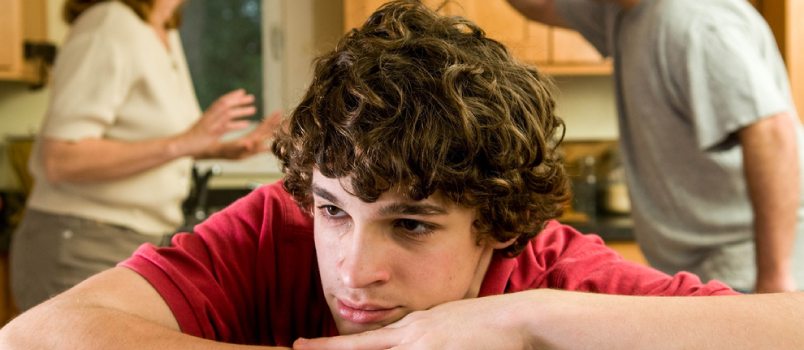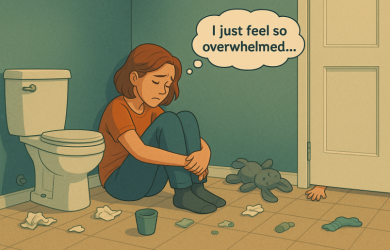What Happens to Kids When Parents Fight?

Unlock Daily 30-Sec Tips for a Happier Relationship
👉 Subscribe FREEKey Takeaways
Marriage.com AI Quick Summary
Even in the most idyllic of relationships and marriages, there are occasional disagreements.
These can range from one or both partners utilizing the silent treatment to occasional sniping, to full out high volume screamathons with both partners shouting hurtful words.
Going from two to three or more
Okay, so this is part and parcel of life with a partner when there are just two of you, but when you have children, as parents know, the whole life equation changes.
Priorities, no doubt, have changed, along with a million other aspects of your relationship, but arguments still pop up. This brings up a question which must be addressed: what happens to your children when you and your partner argue?
Let’s delve into and see what the experts have to say about this.
This is just the beginning
As you no doubt already know, fighting in the vicinity of kids results in a myriad of negative results.
It is often found that parents who have many conflicts in front of their kids may actually change the way their kids process information, in other words, how kids think.
Alice Schermerhorn, Assistant Professor in UVM’s Department of Psychological Science, found that “children from high-conflict homes, by training their brains to be vigilant, process signs of interpersonal emotion, either anger or happiness, differently than children from low-conflict homes.” Keep that in mind the next time you are tempted to yell about something.
This is a subject area where there has been a great deal of research
Since this is such an important area, researchers all over the world have published millions of words about it. For example, researchers Mark Flinn and Barry England analyzed samples of the stress hormone, cortisol, taken from all the children in a village on the island of Dominica in the Caribbean in a 20-year study.
They found that children who lived with parents who constantly quarrelled had higher average cortisol levels which indicate stress than children who lived in more peaceful families.
And what effect did these high levels of cortisol produce?
The children with the higher levels of cortisol frequently became tired and ill, they played less, and slept less than their peers who grew up in more peaceful homes.
Think about the down the broad ramifications of this. If a child is ill, he or she misses school and may start suffering academically. If children do not engage in playing with each other, they may not develop the social skills necessary to get along well in the world.
Age factors when it comes to the effects of parental arguing
Children as young as six months old can recognize strife around themselves.
Most adults can remember their parents arguing. How old the child is determined in part the reaction or effect parental arguing has. A newborn may not be able to sense the tension in a marital relationship, but a five-year-old certainly can.
Children model their behavior on what they observe in their environment
In other words, children learn by copying what they see and hear around themselves. As a parent, you are the world to your kids.
If you engage in shouting matches, your child will witness these and will grow up thinking that this is the norm.
For your children’s sake, it is best to keep the volume on low when you disagree with your partner, so that you do not have that sort of behavior emulated by your offspring. Not only will your child benefit, so will your neighbors!
Here is a list of some of the possible effects and there are many
- Children may become insecure and withdrawn
- Behavioral problems may develop
- Kids may develop health problems, real or imagined
- Children may be unable to focus in class which could result in learning problems and poor grades
- Feelings of guilt may arise. Children often think that they have caused the parental conflict
- Children may become depressed
- Interactions with other children may become problematic or combative
- Children may become physically aggressive; they may hit, push, shove or even bite other children
- Some children may become verbally aggressive; they may tease, insult, use inappropriate language, and call other children names
- Children may develop poor sleep patterns and have nightmares
- Poor eating habits may be established. Children may eat too much or may eat too little.
- Children may become picky eaters and start losing essential growth nutrients
So what to do?
Many parents instinctively know or learn that arguing in front of their children is not necessarily a good thing.
Some parents may just try to avoid all conflict, but that too creates its own problems. Other parents may give in to or capitulate to their partner, in order to end an argument, but again, this will not lead to a satisfactory outcome.
Mark Cummings, a psychologist at Notre Dame University, has written extensively about what happens to children who grow up in situations where there is a great deal of marital quarreling, and says that by having children witness the resolution of a disagreement, children will feel more emotionally secure.
He goes on to state, “When kids witness a fight and see the parents resolving it, they’re actually happier than they were before they saw it. It reassures kids that parents can work things through. We know this by the feelings they show, what they say, and their behavior—they run off and play. Constructive conflict is associated with better outcomes over time.”
The middle road is the best to take for the well-being of the entire family. Fights, arguments, disagreements, conflicts, call them what you want to–are part of what makes us human. Learning how to eventuate the most positive outcome is the key to growth and to make for the healthiest lives for both the parents and the children.
 Tips
Tips
Write your tip or submit a video tip
All tips are reviewed before the publishing.
Share this article on
Want to have a happier, healthier marriage?
If you feel disconnected or frustrated about the state of your marriage but want to avoid separation and/or divorce, the marriage.com course meant for married couples is an excellent resource to help you overcome the most challenging aspects of being married.
Recent Articles
Related Quizzes
Unlock Daily 30-Sec Tips for a Happier, Healthier Relationship
👉 Subscribe FREE on YouTube We'd love your feedback!
We'd love your feedback!
 Expert Q&A
Expert Q&A
Ask your question related to this topic & get the support you deserve from experts.



















 Thanks for your feedback!
Thanks for your feedback!